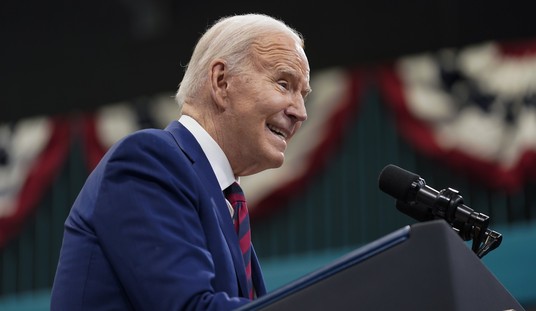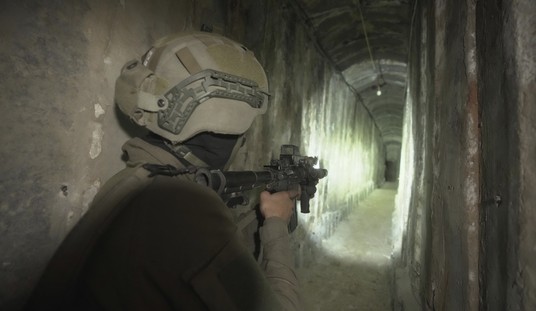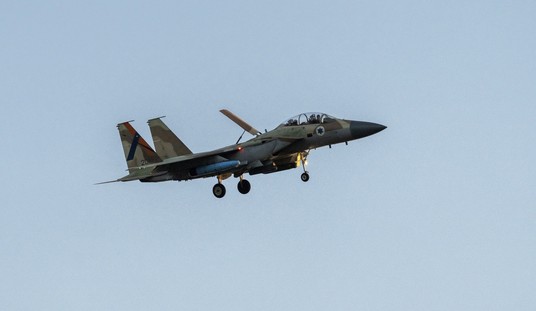 When Obama gave his speech on September 10, promising to “degrade and destroy” ISIS, it was interesting for what it said and didn’t say. Obama laid out a four part strategy for defeating ISIS. The most notable thing it didn’t say was that Obama intended to ask Congress for authority to wage a war against ISIS that would, at a minimum, encompass two countries, one of which, Syria, doesn’t want us operating on their territory.
When Obama gave his speech on September 10, promising to “degrade and destroy” ISIS, it was interesting for what it said and didn’t say. Obama laid out a four part strategy for defeating ISIS. The most notable thing it didn’t say was that Obama intended to ask Congress for authority to wage a war against ISIS that would, at a minimum, encompass two countries, one of which, Syria, doesn’t want us operating on their territory.
My administration has also secured bipartisan support for this approach here at home. I have the authority to address the threat from ISIL, but I believe we are strongest as a nation when the President and Congress work together. So I welcome congressional support for this effort in order to show the world that Americans are united in confronting this danger.
Later in the speech he does recognize the need for limited congressional action:
Across the border, in Syria, we have ramped up our military assistance to the Syrian opposition. Tonight, I call on Congress again to give us additional authorities and resources to train and equip these fighters.
Before the speech, Obama told congressional leaders much the same thing:
Ahead of the speech, Obama met for nearly two hours with the top four congressional leaders on the threat posed by the group also known as ISIS and ISIL. The lawmakers left the meeting without speaking to the media.
However, a White House statement released after the session made it clear the president would not be asking for a congressional vote to authorize military force. “The president told the leaders that he has the authority he needs to take action against ISIL in accordance with the mission he will lay out in his address tomorrow night,” the statement said in part. It added that he would “welcome” congressional support.
This has set off a low-level debate on where Obama stands on the use of force and the applicability of the War Powers Resolution. Via Reason:
In last year’s run-up to what once seemed like inevitable war against Syria, the president made what can be interpreted as an incoherent claim: that he had enough legal cover to start bombing Syria, but that he would nonetheless seek congressional approval. When that approval was not forthcoming, the president decided on a diplomatic solution instead. But note how he treated the congressional-authorization question one year ago today:
[E]ven though I possess the authority to order military strikes, I believed it was right, in the absence of a direct or imminent threat to our security, to take this debate to Congress. I believe our democracy is stronger when the President acts with the support of Congress. And I believe that America acts more effectively abroad when we stand together.
So either the president no longer believes these things, or he finds such beliefs to be an untenable hindrance in the waging of his latest war. At any rate, as in his more blatant nose-thumbing of Congress over U.S.-led regime change in Libya, Obama’s position on the constitutionality of war is essentially the opposite of what it was when he first sought the presidency. And it is important here to stress that Sen. Obama’s more humble conceptions of executive-branch latitude was an essential selling proposition of his candidacy in the first place.
Whether the War Powers Resolution is constitutional or not (I don’t think it is), every administration since Jerry Ford’s has given lip service to following it. What makes Obama’s response different? The mistake here is assuming that some sort of coherent process is involved and not amateurish political ass-covering. Let’s look at the military actions either carried out or contemplated by the administration.
Libyan intervention–
Obama did not ask Congress for approval for drone and conventional airstrikes carried out in Libya to assist in the overthrow of Muammar Gaddafi.
Syrian intervention–
Obama asked Congress to approve airstrikes against Syria and, separately, to approve arming various anti-Assad groups.
ISIS campaign–
Obama did not ask for approval for airstrikes but did ask Congress to act to fund Syrian rebels.
Common Thread
The common thread running through these is when there is low risk of something going wrong and credit to be gained from being seen to act unilaterally, Obama acts. In the cases of Libya and ISIS, public opinion favored airstrikes so Obama determined he had the authority to carry them out. Ordering airstrikes was easy and popular. In the case of ordering airstrikes in Syria, there is even a bigger payoff. America isn’t all that fond of either Assad or his Hezbollah allies. It is a huge public relations win.
On the other hand, airstrikes against Syria were problematic. Not only was public opinion against the idea but our NATO allies weren’t big on the idea either. Russia, who Obama had deputed to represent US interests in the nuclear negotiations with Assad’s ally, Iran, was opposed. And, unlike Libya, there wasn’t a visible or viable replacement for Assad while the opposition was largely al-Qaeda. In this case, Obama suddenly discovered that Congress needed to approve the action so that if things went south, he would not be alone.
This is what we see playing out in the ISIS campaign. Airstrikes in Iraq and Syria are popular. so Obama relies upon the AUMF for actions in Iraq, even though it clearly doesn’t apply and he wants it repealed, and for his own authority for strikes in Syria. Training Syrian rebels, though, carries a lot of risks (see my post on the subject for a laundry list of them). Logically, there is no reason for the United States to be involved in the training or equipping of Syrian rebels. Saudi Arabia has donated training bases. They could just as easily provide trainers. So could the Turks. But, as they are coalition members, Obama would be criticized if these troops turned out to be what one would expect Saudi Arabia to produce and defect en masse to al-Qaeda.
The Game
By asking Congress to authorize the US to train and equip the Syrian moderate secular rebels that Obama envisions as a ground force he makes Congress an partner in the process. If these guys go rogue, then all of official Washington has a vested interest in studiously ignoring that outcome.
On the other hand, Obama and his administration are talking up the fact that to be successful the campaign must have a ground component. And they are right. Airstrikes may be as telegenic as all get out but they are limited in their ability to take, hold, and deny use of real estate. Also, civilians don’t feel safer when there are a lot of airstrikes going on and tend to move creating a refugee crisis. So now Congress has to either sign onto training the next generation of al-Qaeda or they have to give Obama an escape hatch for when his strategy fails.













Join the conversation as a VIP Member